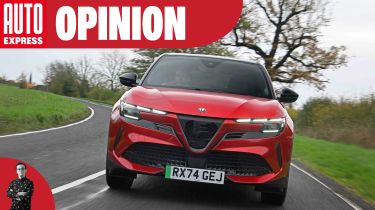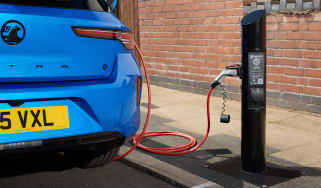Motability’s definition of a ‘premium’ car is outdated, and here’s why
Our consumer reporter believes Motability needs to get with the times and reasses what it classifies as a premium car

If you were brave enough to tune into the Autumn Budget, you might have heard Chancellor Rachel Reeves infer a change in models available through the Motability scheme, providing a curious insight into how different brands are perceived.
Following what many interpreted as a political decision by Reeves to boot out “premium brands” amid suggestions the scheme was being abused, the organisation, which is effectively the UK’s largest leasing company, unintentionally uncovered some rather antiquated views. It appears as if someone who knows nothing about today’s car market has been asked to reel off the names of a handful of brands that they ‘think’ occupy the premium segment.
Yet, while it’s hard to deny the majority of these manufacturers’ premium status – Mercedes, BMW and Audi are clearly not budget options – nowadays the definition of a premium car goes a little further than just the badge on the bonnet. And when you’re buying a car, how important is this?
Take Kia, for example: it’s the UK’s third-best selling car brand, coming in just behind the premium car stalwart that is BMW. Given BMW sells more cars than Kia, a brand referred to by many as ‘mainstream’, do we perhaps overestimate the German maker’s supposed exclusivity?
Yes, BMW’s cars are typically more expensive than Kia’s offerings, but the best-selling Kia Sportage isn’t exactly cheap, starting at over £30,000. Base models feel pretty smart inside, while top-spec examples are even classed as ‘luxury’ cars by the government when it comes to calculating road tax.
Then there’s Skoda, which was once viewed as the poor relation of the Volkswagen Group. Nowadays, though, many of its models feel just as ‘premium’ inside, if not more so, than their VW and Audi counterparts, despite the less-appealing brand name.
In fact, we’d go as far as saying the Skoda Elroq – Auto Express’ Car of the Year – is more of a top tier product than Alfa Romeo’s small SUV, the Junior. While Alfa has been removed from Motability's listings for being too posh, the Elroq's larger sibling, the Enyaq, is still available to lease.
Then you have brands such as Polestar and Volvo, which for years at Auto Express we’ve placed directly in line with the likes of Audi, BMW and Mercedes. It’s not just us that holds this view, though; Polestar and Volvo designs and prices models to compete directly with Germany’s finest.
So with Reeves specifically condemning the leasing of Mercs through Motability in her Budget speech, why not the brand’s Swedish rivals? Is it because Volvo produces an entry-level model in the EX30? That might seem like a fair argument, until you realise that all of the brands currently excluded for being too high-end also provide similar entry points to their range, be it a hatchback or a compact SUV.
Regardless, entry-level models such as these, alongside the popularity of finance, leasing and, of course, social media, means buying a premium car has seeped its way into the mainstream.
With this in mind and the lines almost entirely blurred, is a BMW 1 Series in any sense more premium than a highly-specced Peugeot or Volkswagen? Ultimately, that judgement is yours to make, but all we can do is recommend that you compare like-for-like with the more mainstream offerings as, like the own-brand stuff you find in the supermarket, the difference might not be as drastic as you might expect.
Did you know you can sell your car through Auto Express? We’ll help you get a great price and find a great deal on a new car, too.




